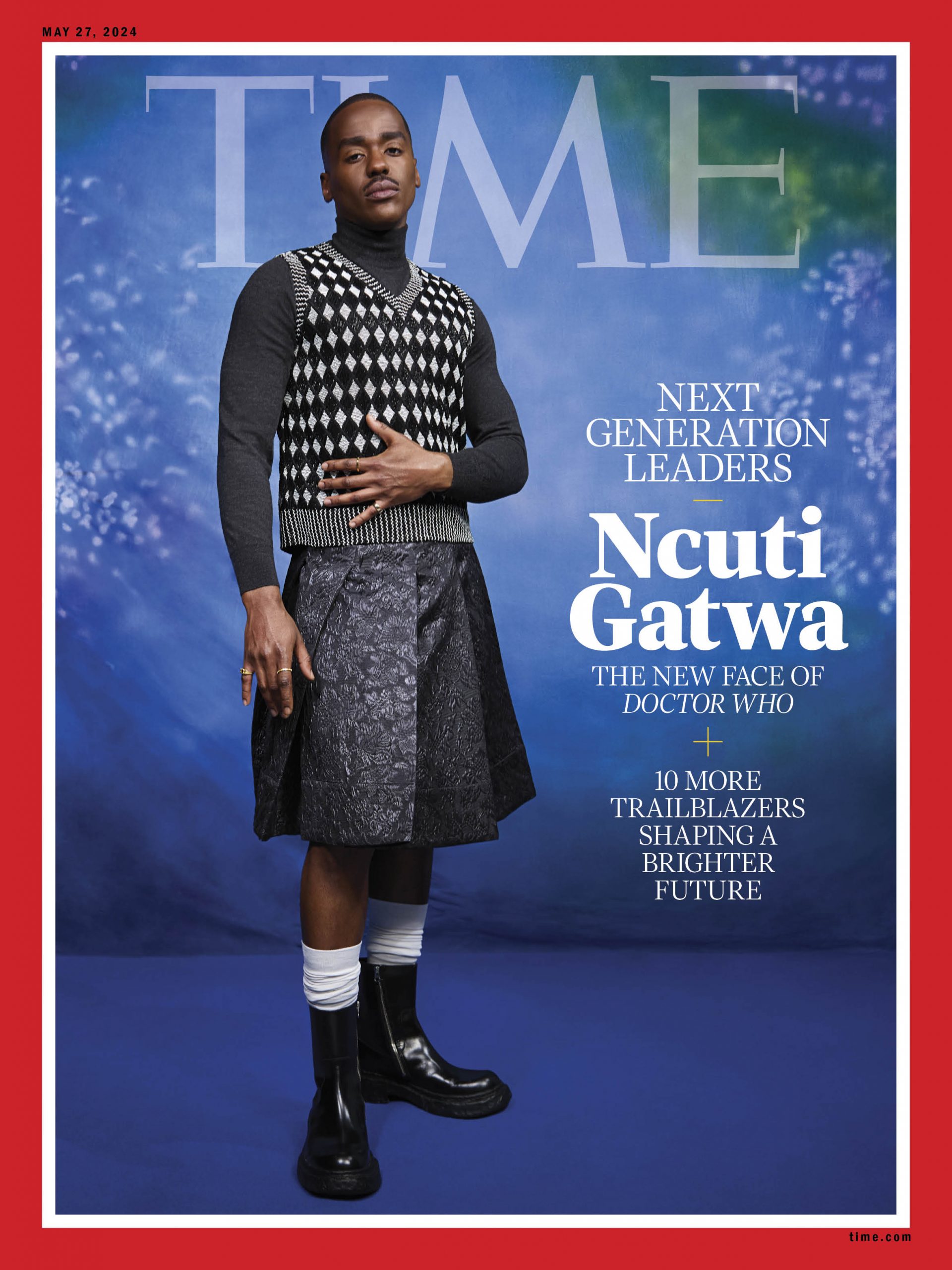For the last decade, with the support of our partners at Rolex, TIME has made a study of emerging leadership in all its many forms—not just statesmanship and intellectual achievement, but also cultural prominence and athletic triumph. The latest class of Next Generation Leaders, spanning eight countries and six continents, is no exception to that tradition of variety.
And yet amid such rich diversity, this cohort finds commonality in the way their leadership is expressed. They embody resilience; Gazan poet Mosab Abu Toha tells us that “writing a poem is an act of resilience against forgetting.” They are focused on building effective solutions to real problems, whether the impact of an aging population on Japan’s economy or the lack of minority representation in competitive swimming. And they find joy at a time when that act can be its own kind of heroism.
[time-brightcove not-tgx=”true”]
Ncuti Gatwa, the Scottish actor on our Next Generation Leaders cover, is an expert at that last skill. At a pivotal moment for the beloved 61-year-old Doctor Who franchise, Gatwa this month becomes the first queer Black person to step into the iconic Doctor’s shoes.
Gatwa’s story is one of determination. Only a handful of years ago, after a strong start to his acting career on stage, offers began to dry up. He lost his apartment. He was barely making ends meet. “The phone just stopped ringing,” Gatwa told TIME. Then Netflix was on the line, offering him the role on Sex Education that would win him fans around the world. Gatwa found financial stability and more. Today he leads a famed British institution and one that is now a global export too, streaming in 150 markets and 25 languages. But that sense of precarity has stayed with him. “Because I’ve been homeless, I don’t think I’ll ever not wake up and check my bank balance or whether there’s food in my fridge,” he says. Gatwa hopes to be remembered as much for his take on the role as for breaking barriers, and he knows inhabiting this character carries weight. “Now I understand that something you’ve done might have touched someone’s heart,” he tells us, “or made them feel safe or less lonely.”
In today’s world, the importance of leading with heart is clearer than ever. TIME is pleased to continue to introduce readers to young people who are putting that truth into action.

